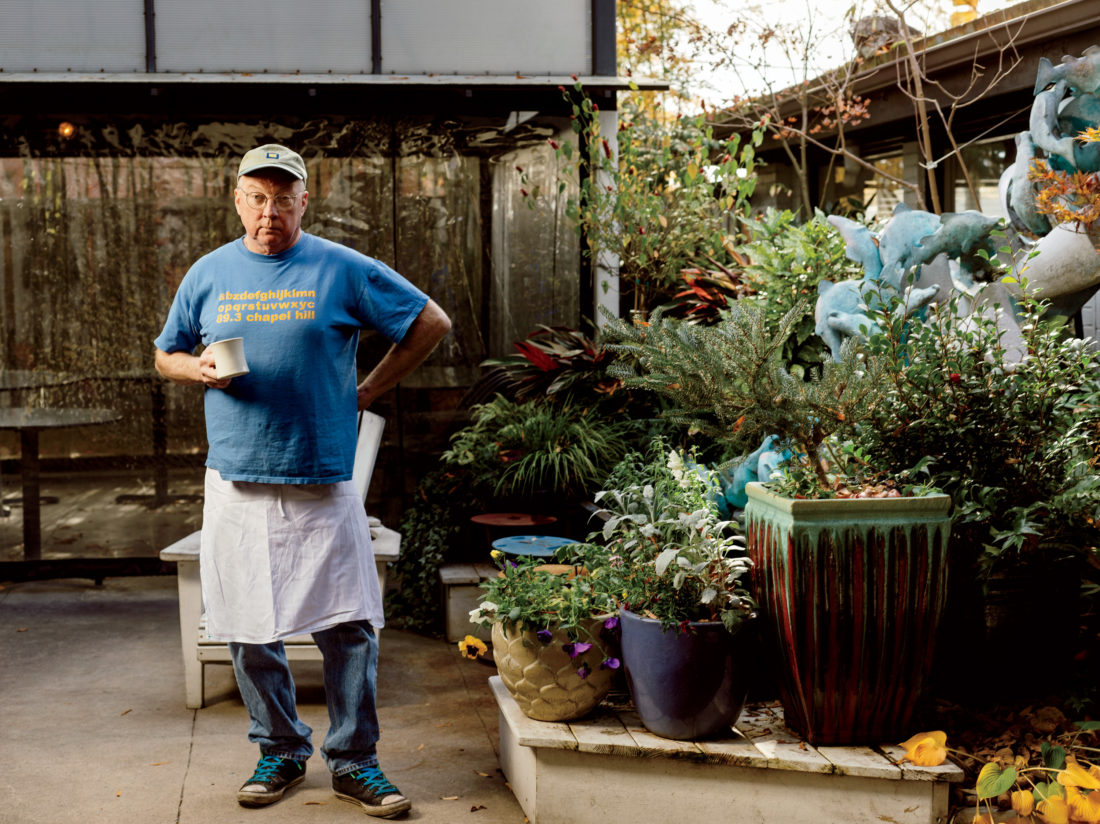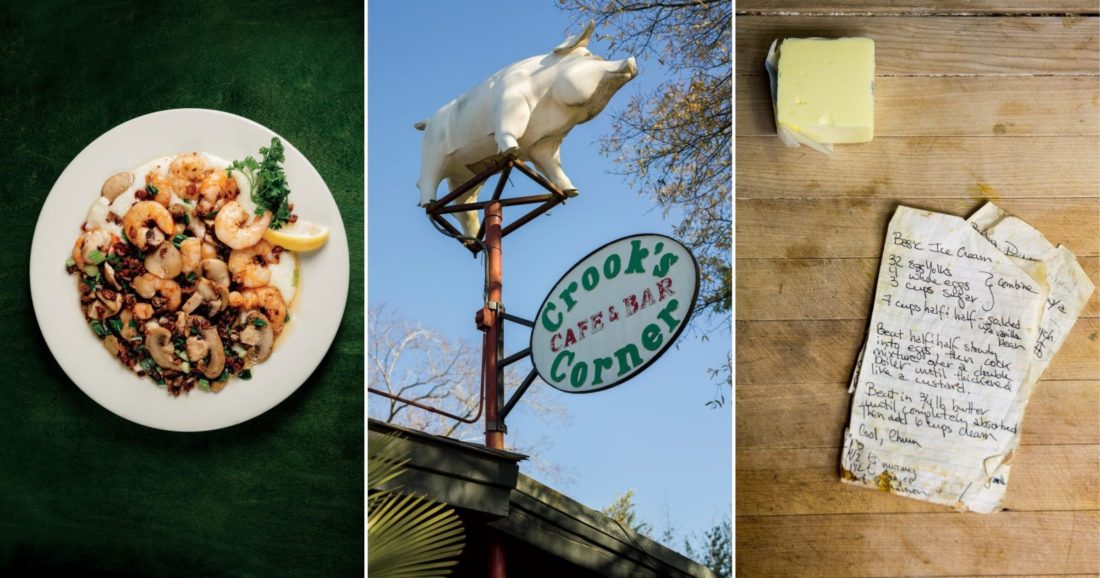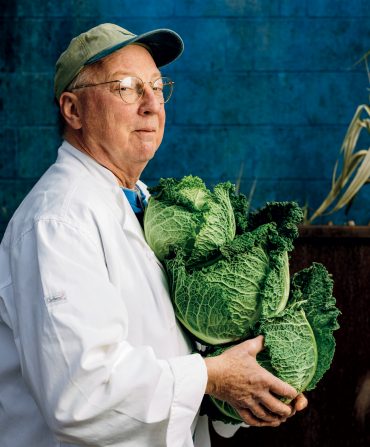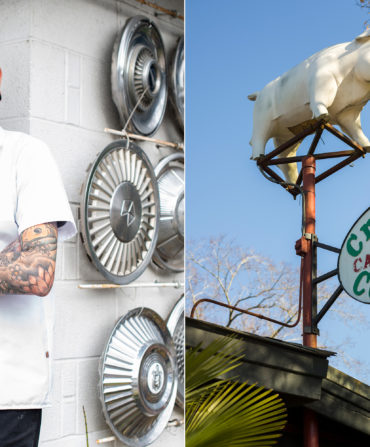In the beginning there was Crook’s Corner. Every other joint in this town is an asterisk, the what-happened-after parade of four-star restaurants lining Franklin and Rosemary Streets. Crook’s was our first star. I don’t mean to lay it on too thick, but it’s no accident the restaurant sits squarely on the spot where Chapel Hill becomes Carrboro (or the other way around), the Tigris and Euphrates of Southern food. No, Crook’s didn’t invent it—Southern food has been here since there was a South—but they gave it a coat and tie and a haircut. And it cleaned up well.
Bill Neal and Gene Hamer started what we now know as Crook’s Corner in 1982. That’s almost exactly forty years ago, which, coincidentally, is as long as I’ve lived here too. I’ve been going there since the beginning. At the time I lived in a two-room duplex right down the street (rent: $125 a month), long before I could afford an entrée. I’d just have a cup of coffee at the bar and sit there for a while because it felt so warm, so unassuming, perfect and humble. I had no idea what was going on in the kitchen, but no one did yet: that Bill Neal, a self-taught cooking genius, was transforming the way we would think about biscuits, grits, and sweet potato pie.
Bill Neal died in 1991 and was succeeded by Bill Smith, who continued Neal’s jazzy riffs on heirloom cuisine. I can’t remember when I actually had enough money to eat there and whose food I was eating. I think it was an amalgam of both Bills, though. I feel like over the decades that’s what happened.

One of the privileges of living high on the hog is that you appreciate what a beautifully complicated experience eating can be. You realize that it’s not just food that sustains, but the experience you have eating it. I loved going there by myself and sitting at the bar the way I used to when I was just starting out for the life I was after. Instead of coffee I’d order hush puppies and Hoppin’ John and then whatever was in season. Over the years I’ve had a drink at that bar with almost every Southern writer you can name, from the late Randall Kenan to the young Wiley Cash. And one unbelievable night twenty-two years ago I met the woman who would become my wife at that bar. She was the bartender. Thank you, Crook’s.
There are a lot of wonderful ghosts here. It was a fish market in the forties (run by a woman named Rachel Crook). For years it lay abandoned. At some points it became a taxi stand, a pool hall, a bait-and-tackle shop, and a barbecue joint. There’s a life-size pink pig standing astride a metal platform twelve feet above the entrance to Crook’s, and once upon a time that pig marked the highest point of any building in either town. Or so I like to think. That’s how it feels. That pig is as famous as Michael Jordan. I don’t know how it could ever be taken down, no matter what fills that space next.
Iconic is a word that writers like me reach for so often it’s lost its meaning. It’s times like these, when I really need it, I wish I’d held back a time or two. Nostalgia kicks in with a vengeance, doesn’t it? Our life becomes a memory faster than the speed of light, but some things seem to remain long after they’re gone. Closing my eyes I can still taste it, feel what it was like to be there, falling in love at a bar, eating a plate of soft-shell crabs.
Daniel Wallace is the author of six novels and directs the Creative Writing Program at the University of North Carolina at Chapel Hill, his alma mater.
> Read G&G’s 2015 feature about Bill Smith and Crook’s Corner








